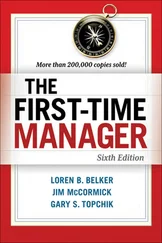Джон Болл - The First Team
Здесь есть возможность читать онлайн «Джон Болл - The First Team» весь текст электронной книги совершенно бесплатно (целиком полную версию без сокращений). В некоторых случаях можно слушать аудио, скачать через торрент в формате fb2 и присутствует краткое содержание. Год выпуска: 2013, Жанр: Триллер, на английском языке. Описание произведения, (предисловие) а так же отзывы посетителей доступны на портале библиотеки ЛибКат.
- Название:The First Team
- Автор:
- Жанр:
- Год:2013
- ISBN:нет данных
- Рейтинг книги:5 / 5. Голосов: 1
-
Избранное:Добавить в избранное
- Отзывы:
-
Ваша оценка:
- 100
- 1
- 2
- 3
- 4
- 5
The First Team: краткое содержание, описание и аннотация
Предлагаем к чтению аннотацию, описание, краткое содержание или предисловие (зависит от того, что написал сам автор книги «The First Team»). Если вы не нашли необходимую информацию о книге — напишите в комментариях, мы постараемся отыскать её.
Student protesters are being slaughtered in the Midwest.
The Jewish pogroms have begun.
You are now living in Soviet — occupied America!
One nuclear submarine and a handful of determined patriots against the combined might of Russia and Soviet-occupied America… The Most Explosive and Gripping “What If” Novel of Our Time!
First published January 1971
The First Team — читать онлайн бесплатно полную книгу (весь текст) целиком
Ниже представлен текст книги, разбитый по страницам. Система сохранения места последней прочитанной страницы, позволяет с удобством читать онлайн бесплатно книгу «The First Team», без необходимости каждый раз заново искать на чём Вы остановились. Поставьте закладку, и сможете в любой момент перейти на страницу, на которой закончили чтение.
Интервал:
Закладка:
He decided it would be best to leave the picture as it was and sat down in front of his desk. In the lower left-hand drawer he had a pile of material for review when time would permit. Time permitted now; carefully he removed it and put it in place where the regular morning’s input should have been. From the center drawer he took out a yellow legal-sized, ruled pad and prepared to make notes.
For some reason his mind turned back to Uncle Tom’s Cabin. He had never read the book, but he remembered the frequent allusions to Eliza, or whatever her name was, and her escape across the broken ice. That was the way he felt now; he was trying to cross a river without being able to see the far shore. He could only leap from one convenient piece of ice to another, knowing that any chosen foothold could prove false and plunge him into dark wa-
ters. The work before him was an ice cake — something he could utilize for the moment to keep his head above water.
As he began to note down the salient facts he was gleaning from the pile of technical and semitechnical material, he tried to fight down the feeling that much of what he had done in the past had been disregarded, as the radar warning had been before the attack on Pearl Harbor. People did not like to receive unwelcome information and often looked for a way out — such as ignoring it altogether. That was the key word — ignore. They wouldn’t ignore it anymore.
His work was interrupted when a colleague paused in the open doorway to his office. The two men simply looked at each other a moment before Hewlitt spoke. “Is he here?” he asked.
The man in the doorway nodded; after that he was gone. Hewlitt felt a slight flare of anger, then he forced himself to think logically and to banish the danger of emotionalism. The responsibility clearly lay in many different areas, more important ones, and his piece of the puzzle had been at best small and unimportant in comparison with all the others. After he had fixed that idea in his mind, he felt a little better.
The phone on his desk rang. He picked it up with deliberate calm and spoke his name. “Come to the cabinet room at ten fifteen,” he was told by a secretarial voice. “We’re to get some kind of a briefing.”
Hewlitt acknowledged and hung up. Now some of the uncertainty was about to be resolved; for that he was grateful. First of all he wanted information, as much of it as he could get. After that he would decide which cake of ice he would leap to next. He turned back to his work, suppressing the prickling sense of alarm which kept trying to germinate in his mind. If he kept his head, he knew, he couldn’t help but come out better in the end.
At six minutes after ten by his Rolex watch he got to his feet, locked his notes inside his desk, and slipped a small memo pad into his coat pocket. With a strange, almost chilly sense of calm he went up the stairs and headed toward the portico. The short walk in the open air supported him and gave him the feeling that God was still in his heaven no matter how much his human creatures had managed to foul up things on the planet Earth.
By contrast the atmosphere in the cabinet room was tight. In times of crisis this chamber had seen men of high capability, and some of far less than that, gather to confer, but it had always been in an aura of problems shared. Now, Hewlitt sensed, it was a clear case of every man for himself. He counted thirty-two people, all of whom he knew more or less well, including five women who had about them the common look of confidential secretaries who could be trusted to keep classified information inviolate. There was very little movement or conversation; everyone simply stood and waited in an aura of strained and counterfeit patience.
Without preamble or ceremony a man came into the room and immediately froze the air by his presence. He was not an imposing figure; he did not stand more than five feet seven or eight and he was distinctly tubby. The plain blue suit he wore was without any pretensions; it was indifferently cut of very ordinary material and there were flecks of what might have been dandruff on the shoulders. The man’s walk had in it a slight suggestion of a waddle; his body moved visibly from side to side like that of a laborer on his way home after a day of physical toil. His face was broad, a trifle coarse, and expressionless. His nose was flattened in the Slavic manner, but it was entirely overshadowed by his eyes, which were charged with hostility and suspicion. He was a peasant, Hewlitt decided, but it was far too early to know whether that was good or bad.
The man stopped, looked about him, and said, “You will all sit down. If there is not enough numbers of chairs, look for more and bring them in.”
There was no mistaking the tone — it was an order. At the same time it was to a degree reasonable. There were different reactions; all five of the women went out, perhaps because they were used to providing extra chairs when they were needed. Some of the men went with them. Hewlitt did not; he chose a chair conveniently at hand and sat down, aware that he had done what he had been directed to do but that he had not allowed himself to be used as an errand boy. People who sat down in this room were not expected to carry in their own chairs, despite the tradition that retiring cabinet members took their chairs with them when they left. But not in their own hands.
There was an interval of awkwardness as chairs were carried and rolled in through the doorway by people who were not too accustomed to doing this for themselves. During it Hewlitt reflected on the intonation of the words the man had spoken and examined them in the light of his special knowledge. The eastern European accent had been unmistakable and the grammar had been visibly inaccurate, but the fluency had been reasonably good. In all probability the man considered that he spoke English very well. It hit Hewlitt suddenly that perhaps this occasion was a strain on the man also and that his acquired language capability had suffered as a consequence. That reminded him of something he had learned in the translation business — not to read nuances into the words of people who had less than a perfect command of the language they were using. Or expect these same people to grasp subtleties they could not understand. He sat calmly, his legs crossed, waiting for the next move.
The room quieted down as people found their places and settled themselves in uncertain expectation. Hewlitt remained motionless, taking inventory of who was present and who was not. The people who surrounded him were largely GS-ii’s, with a few higher and a scattering lower. It was a meeting of the office staff, those who did the paper work, processed the mail, and kept the business end of the establishment going. None of them was on a policy-making level, which was probably a good sign.
When it was quiet enough, the man was ready to speak once more. He stood at the head of the table, still an unimposing figure, but with the advantage of head height over his listeners. “My name is Zalinsky,” he said. “If it is necessary that we speak, you will address me as ‘Mr. Zalinsky’ only. It is allowed no exceptions.”
He paused for a moment and tipped his head far back to one side as though he were trying to remove some sort of small muscle cramp from his neck. “I am here to do work which has already begun. I know that you ask each one what will happen to you. If you follow the orders you receive, and perform your work as told to you, there will not be too much of change. That is, for you there will not be too much immediate change; otherwise there will be many changes. If you have not already found out, you will soon learn that much which you have been doing in the past was very wrong. It will not be wrong any longer. I will say this to you: the easier you accept what will be done, the more willingly you perform the duties which will be to you given, the easier it will be for you and all of your friends.”
Читать дальшеИнтервал:
Закладка:
Похожие книги на «The First Team»
Представляем Вашему вниманию похожие книги на «The First Team» списком для выбора. Мы отобрали схожую по названию и смыслу литературу в надежде предоставить читателям больше вариантов отыскать новые, интересные, ещё непрочитанные произведения.
Обсуждение, отзывы о книге «The First Team» и просто собственные мнения читателей. Оставьте ваши комментарии, напишите, что Вы думаете о произведении, его смысле или главных героях. Укажите что конкретно понравилось, а что нет, и почему Вы так считаете.












